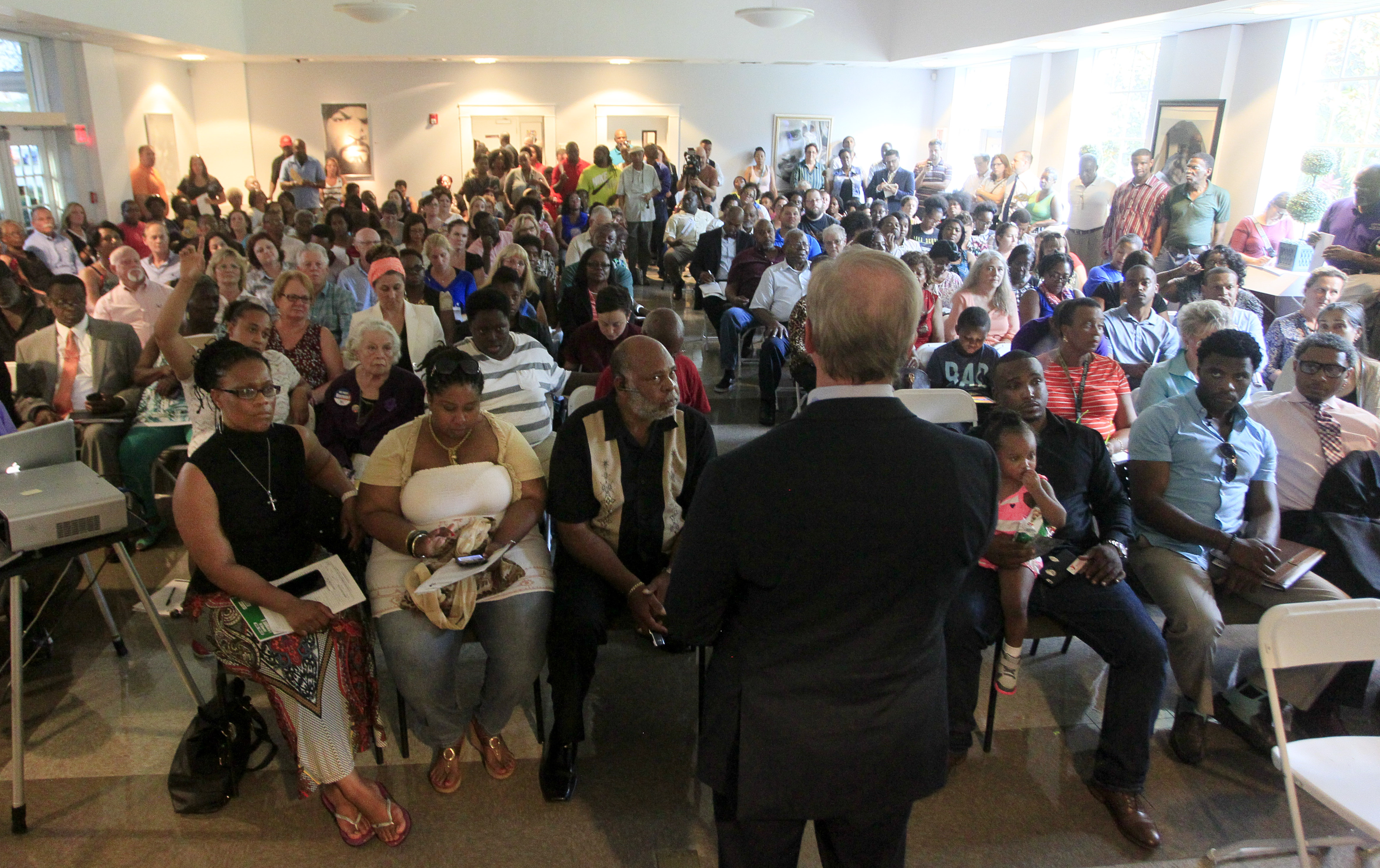For disclosing in careful detail and through fresh, original storytelling how district leaders in Florida’s Pinellas County transformed five elementary schools into some of the worst in the state through resegregation and intentional neglect, the “Failure Factories” series by the Tampa Bay Times has won the 2015 Worth Bingham Prize for Investigative Journalism.
The Times reporting revealed that when Pinellas County School Board members ended integration in 2007, schools were left overwhelmingly poor and black. The board failed to provide the money and resources promised and did nothing to rectify the situation when black children started failing at an alarming rate, veteran teachers walked away from their jobs and middle-class families fled the area.
Thousands of children are now suffering the consequences, attending elementary schools where state standardized test scores show that eight in 10 students fail reading and nine in 10 fail math. Violence is a part of daily life and a culture of fear has been institutionalized. For many students and their families, there is no way out.
The Times reports have led to a number of important reforms: Three of the five schools profiled have been designated magnets to attract diversity and better teachers, and local businesses have invested thousands of dollars and hundreds of volunteer hours to improve the schools. When U.S. Education Secretary Arne Duncan visited one of the schools profiled, he criticized the Pinellas school board for “education malpractice” and vowed to remain involved in the case. The Florida Department of Education additionally opened an investigation into the district’s use of federal Title I dollars to determine if the money was properly spent.
Reporters for the series were Times education reporters Cara Fitzpatrick and Lisa Gartner, investigative reporter Michael LaForgia, data reporter Nathaniel Lash and photographer Dirk Shadd. Chris Davis was the editor.
Bingham judge Deborah Nelson said: “In a stunning graphic opener, this project uses powerful data storytelling to show how education policies gradually and invisibly marginalized thousands of low-income, minority children. Then it takes you into the classroom with lucid text and video, so you can see the results for yourself. No wonder officials had to respond.”
Another Bingham judge, Carol Marbin Miller, added: “In precise, compelling prose, this series exposed how a Florida county school board neglected African-American schools until they become little more than warehouses for children. Through a sophisticated use of a mountain of data, the reporters showed how the county first resegregated their district, and then failed to act when separate became profoundly unequal. The stories of how this affected Pinellas children and their families were heart-wrenching.”
The $20,000 Bingham Prize will be presented to the Tampa Bay Times on Wednesday, May 4, 2016, at the Nieman Foundation for Journalism at Harvard University in Cambridge, Mass.
The panel of nine journalists who judged the more than 100 Bingham submissions received this year are: Miami Herald staff writers Audra D.S. Burch and Carol Marbin Miller, winners of the 2014 Bingham Prize; Lisa Chedekel, senior writer and co-founder of the Connecticut Health Investigative Team (C-HIT) and winner of the 2006 Bingham Prize; Cynthia Hubert and Phillip Reese, reporters at The Sacramento Bee and winners of the 2013 Bingham Prize; Deborah Nelson, associate professor of journalism at University of Maryland’s Philip Merrill College of Journalism; Jacqueline Petchel, executive editor of the Carnegie-Knight News21 multimedia investigative reporting initiative at Arizona State University; Jim Schaefer, an investigative reporter/columnist at the Detroit Free Press and winner of the 2008 Bingham Prize; and Stuart Watson, an investigative reporter based in in Charlotte, N.C., and a 2008 Nieman Fellow.
The Worth Bingham Prize honors investigative reporting of stories of national significance where the public interest is being ill-served. Worth Bingham, who died at the age of 34, achieved prominence as an investigative journalist and was vice president and assistant to the publisher for the Louisville Courier-Journal. His family and friends created the prize in his memory in 1967. He was a 1954 Harvard University graduate.
The Nieman Foundation for Journalism at Harvard educates leaders in journalism and elevates the standards of the profession through special programs that convene scholars and experts in all fields. More than 1,500 journalists from 93 countries have been awarded Nieman Fellowships since 1938. The foundation’s other initiatives include Nieman Reports, a quarterly print and online magazine that covers thought leadership in journalism; Nieman Journalism Lab, a website that reports on the future of news, innovation and best practices in the digital media age; and Nieman Storyboard, a website that showcases exceptional narrative journalism and explores the future of nonfiction storytelling.



